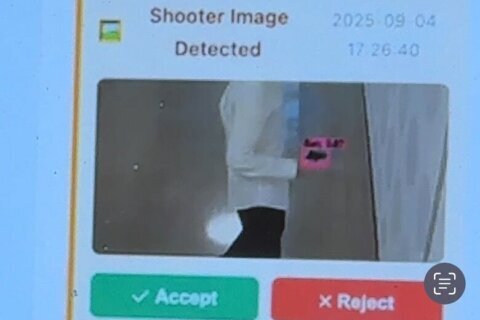WASHINGTON — An Montgomery County high school principal is urging parents to talk with their teenage kids before they watch the second season of a controversial show on Netflix.
The show “13 Reasons Why” received widespread criticism with some accusing it of glamorizing teen suicide when it first came out. During the season the show also introduced to the story line other sensitive topics, which included bullying, rape, harassment, as well as drug use.
With the release of the second season, Principal Renay Johnson at Montgomery Blair High School in Silver Spring is urging parents to discuss the sensitive topics introduced in the show to their children.
Johnson said begin with asking children if they have seen the show.
“While we don’t recommend that they be encouraged to view the series, do tell them you want to watch it with them or to catch up, and discuss their thoughts,” Johnson said.
Parents are encouraged to not be afraid to ask their children if they have had suicidal thoughts, especially if a parent sees some of the warning signs of suicide in their children.
Those warning signs include:
- Direct (“I am going to kill myself”) or indirect (“I wish things would stop”) threats of suicide, both verbal and in writing. Many of these threats are made online or using social media.
- Giving away prized possessions.
- Dramatic change in eating or sleeping habits (either too much or too little).
- Withdrawal and isolation from friends and family.
- Changes in behavior, appearance, hygiene, thoughts, or feelings.
Johnson also said children should be asked if they know about other students who may exhibit the warning signs and help them understand how to respond, if they do have a friend in need.
Sue Rosenstock runs a suicide prevention organization which teaches students to watch out for the warning signs in their classmates. While Rosenstock said she doesn’t believe young people should watch the show, she supports the principal in trying to turn it into a teachable moment, especially when it comes to the topic of suicide.
“Anytime we can give information on how to help children to their parents, its obviously extremely important and it’s critical that we do talk about it,” said Rosenstock who began UMTTR after losing her 16-year-old son to suicide.
Johnson also urges parents to put their agendas aside and listen to their children without judgment during their conversations with them.
Rosenstock believes listening intently without judging the child is a very important step that can be hard for parents.
“Asking these hard questions is very difficult for our generation as parents because of stigmas,” Rosenstock said.








